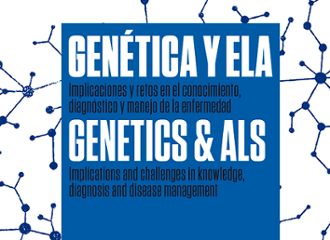Research projects
Start of main content
Identification at single-cell level of molecular and metabolomic mechanisms governing antitumoral response of CAR T therapies in MM patients (M4CART)
21st national competition for scientific and technical research
Personalized therapy, immunotherapy and cancer
Senior Researcher : Idoia Ochoa Álvarez
Research Centre or Institution : Universidad de Navarra. Pamplona.
Abstract
Therapeutic strategies based on chimeric antigen receptor T lymphocytes (CAR T cells) have become a real option for patients with certain hematologic diseases. Despite significant responses, patients with Multiple Myeloma (MM) treated with CAR T therapies have shown significant relapses associated with lack of persistence of CAR T and additional mechanism of resistance. However, the molecular and metabolomic mechanisms governing CAR T cell function and persistence are not yet fully understood, and there is a lack of studies especially after CAR T cell infusion into patients.
Thanks to the advances in single-cell sequencing, it is now possible to acquire gene-expression data for each individual cell in samples containing thousands of cells. These cells can be further grouped into different states, which are characterized by similar, but distinct enough, regulatory and metabolomic mechanisms. However, current regulatory inference methods fail to capture these regulatory dynamics, that are ultimately linked to heterogeneity of cells. Similarly, current methods based on the concept of synthetic lethality for the inference of metabolomic dependencies and vulnerabilities on tumor cells are not tailored to single-cell data.
The hypothesis of this work is that the efficiency of CAR T therapies depends on complex Gene Regulatory Networks (GRN) and metabolomic mechanisms affecting cell viability. Thus, the overarching goal of this project is to dissect the regulatory and metabolomic mechanisms governing antitumoral response of CAR T therapies in MM after cell infusion to the patients. We will use single cell information coupled with novel machine learning methods to identify the key regulatory elements that instruct and govern CAR T cells during CAR T therapies. Further, we will deepen our understanding on how these mechanisms are subverted in those patients who are refractory or present therapeutic failure. Together this work will provide a broad picture of the mechanisms controlling CAR T function and may lead to the identification of factors with prognostic value or could be modulated to improve the therapeutic efficacy of CAR T therapies in MM patients.
-
 Activities related
Activities related
-
 Projects related
Projects related
-
 News related
News related
-
 Publications related
Publications related
 Activities related
Activities related
-
26
Jun
2024
Conferencias La aventura de la ciencia Madrid, Miércoles 26 de junio de 2024, 19:00 horas
-
13
Feb
2025
17th edition. Cycle of conferences and debates in science Digital Twins: Technological Advances and Application Opportunities Madrid, Thursday, 13 February 2025, 17:30 hours
-
18
Feb
2025
Session New Therapies for the Inflammation Treatment Madrid, Feb 18th, 2025, Tuesday. 4PM
 Projects related
Projects related
- Renewable Ammonia as an Energy Vector 2022 Senior Researcher : Francisco Pelayo García Arquer Research Centre or Institution : Instituto de Ciencias Fotónicas, ICFO. Barcelona
- Programming bacterial metabolism for the valorization of plastic wastes (ProgStrain): 2022 Senior Researcher : Sergio Bordel Velasco Research Centre or Institution : Universidad de Valladolid
- Harnessing microRNAs for cancer immunotherapy 2022 Senior Researcher : Alicia González Martín Research Centre or Institution : Universidad Autónoma de Madrid.
 News related
News related
 Publications related
Publications related


End of main content



